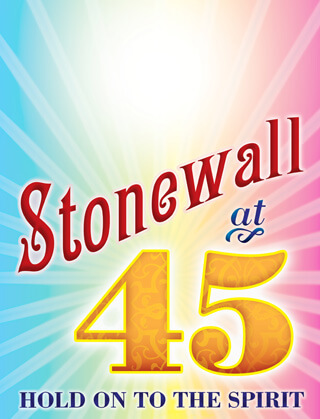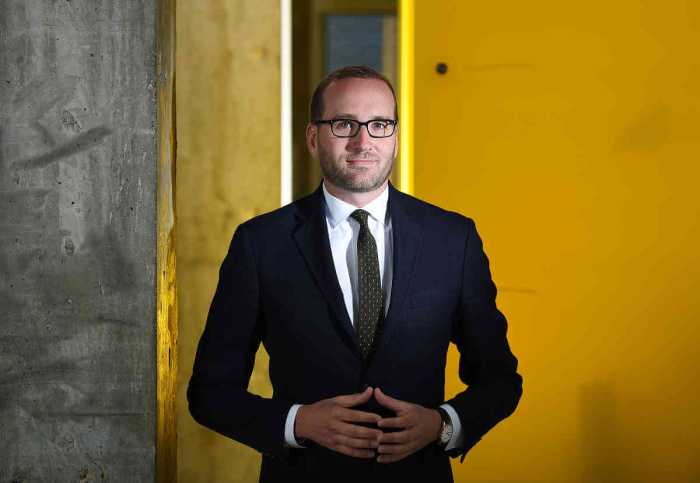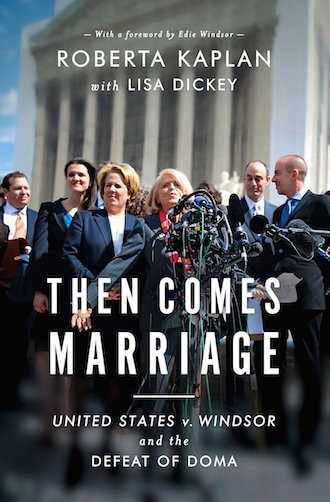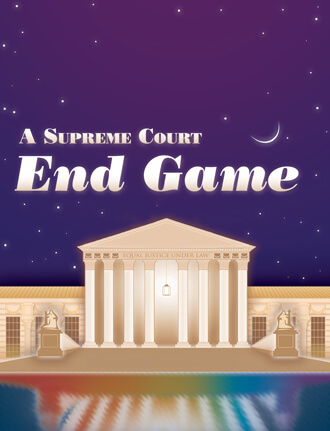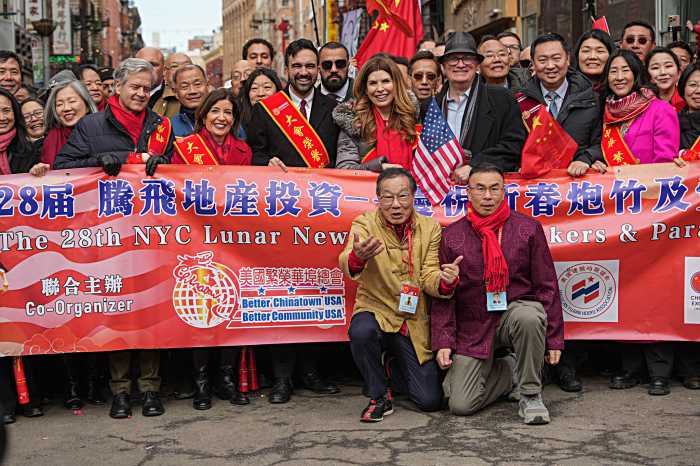ILLUSTRATION BY MICHAEL SHIREY
BY PAUL SCHINDLER | The argument for the federal Employment Non-Discrimination Act is clear and catches the public’s attention because it is so stunning: in 29 states you can legally be fired for being gay and in 32 — including New York — you are at risk due to your gender identity and expression.
That is an outrage that needs to be remedied. The civil rights protections enjoyed, for example, in Massachusetts, New Jersey, Minnesota, Illinois, California, and Oregon should be available to LGBT Americans everywhere.
The problem is that this is not what ENDA would deliver. Civil rights laws generally extend protections to all of life’s significant public activities — including housing, public accommodations, and access to credit, in addition to employment.
So ENDA immediately opens up a debate about incrementalism and I will get to that. The first issue to consider, however, is ENDA’s failure to deliver even on the promise of universal employment protections.
The current version of the measure — the one that garnered bipartisan support when passed in the Senate last year — contains a religious exemption unprecedented in civil rights law, one that gives religiously-affiliated institutions a broad right to discriminate on the basis of sexual orientation and gender identity. By religiously affiliated, I mean not just churches, synagogues, and mosques, but faith-based and affiliated organizations such as Catholic Charities, one of the nation’s largest social service employers.
In the past, religious exemptions in civil rights law have been very narrowly crafted. The 1964 Civil Rights Act — the gold standard in anti-discrimination legislation — allows faith organizations to discriminate only on the basis of religion in hiring related to doctrinal matters. A synagogue can limit the pool of candidates for rabbi to Jewish applicants. An Episcopal church cannot fire a Muslim janitor because of her faith. And no faith organization can place a categorical ban on the hiring of an African American for any position.
That’s not the way ENDA works. As a gay man I could be denied janitorial employment by any faith-affiliated organization. Don’t take my word for it. Tico Almeida, the gay employment rights advocate, acknowledges that the ENDA exemption, which he helped craft when he was a Senate staffer, creates a wide berth for groups like Catholic Charities to bar gay employment.
And as the grassroots activist group Queer Nation points out, the Leadership Conference on Civil and Human Rights, one of the nation’s oldest civil rights groups and a supporter of ENDA, concedes, “A religiously-affiliated hospital could choose to require all nurses to follow a declared set of significant religious tenets, including avoiding same-sex sexual activity, and be able to terminate a male nurse who they subsequently learn is in a relationship with another man.”
The problems with ENDA’s employment protections don’t end there — again, as Queer Nation notes, the bill also bars significant remedies available under the Civil Rights Act in cases of race or sex discrimination. LGBT plaintiffs cannot file disparate impact claims seeking to show that an employer’s policy has disproportionately negative consequences on our community, and the federal government is prohibited from considering religiously-based discrimination against LGBT employees in distributing grant money, cannot require any affirmative action steps to cure longstanding patterns of discrimination, and cannot even collect the data necessary to monitor private sector anti-LGBT employment discrimination, as it is required to do in the case of race and sex.
At the same forum in New York last year where I discussed the exemption language with activist Almeida, Evan Wolfson, an attorney who heads up Freedom to Marry, warned of the terrible precedent ENDA would lock into federal law — what he termed “a license to discriminate.”
Removing the religious exemption language is clearly the absolute minimum our community should demand from our advocates in Washington, most importantly the Human Rights Campaign. Unfortunately, HRC agreed to the exemption language in its negotiations to win Republican support in the Senate. When President Barack Obama recently signaled he is prepared to sign an executive order barring anti-LGBT discrimination by federal contractors, one of those Senate Republicans, Utah’s Orrin Hatch, quickly and predictably stood up to demand the same language be incorporated into that order.
Our advocates have put us in a box, one that is unacceptable, and it’s time to regroup.
Fifty years ago, on July 2, 1964, President Lyndon Johnson signed the Civil Rights Act. A decade later, New York Congresswoman Bella Abzug introduced legislation to add sexual orientation protections to that law. By the early 1990s, neither house of Congress had voted on the bill, and our community shifted to an incrementalist strategy.
Surely the nation was prepared to protect our basic right to a job, so the thinking went.
More than 20 years later, that incrementalism has proven a false promise. We have not enacted ENDA, even in its fatally flawed form.
When Chad Griffin, HRC’s president, stood up in 2009 to challenge California’s Proposition 8, he was outspoken in repudiating what he characterized as the incrementalism of the marriage equality movement, then working from a state-by-state playbook and, for strategic reasons its leaders readily acknowledged, wary of taking the issue into the federal courts prematurely.
Griffin did not achieve the complete victory nationwide he and his allies hoped for at the Supreme Court, but their instinct that Prop 8 could be reversed in the federal courts was well-founded. Meanwhile, the legal advocates Griffin had critiqued were successful in toppling the Defense of Marriage Act, also in federal court.
Whatever the rights and wrongs of the debate over incrementalism in the marriage equality fight –– and recall that barely a dozen years ago, that even included disagreements over whether civil unions represented a meaningful step toward marriage –– that is yesterday's argument. In every state where a ban is still in effect, litigators are in federal court swinging for the grandstands and the victory could be complete by the end of the 2014-2015 Supreme Court session.
LGBT Americans looking to hang on to their jobs and their homes and to access basic public accommodations open to every other citizen deserve no less bold of an advocacy on their behalf.
On the 50th anniversary of the Civil Rights Act, it’s time to revisit the wisdom that anti-discrimination advocates demonstrated in 1964. We should also borrow the courage and foresight Abzug demonstrated a decade later. It’s time to return to the spirit of 1969, the spirit of Stonewall.
We must commit to amending that brilliant work of civil rights protections from a half-century ago. It’s time.

